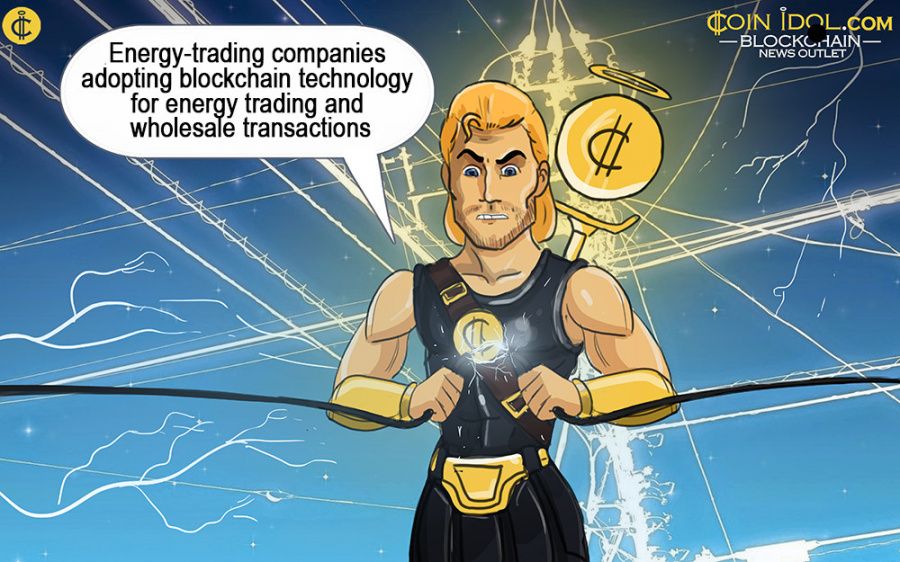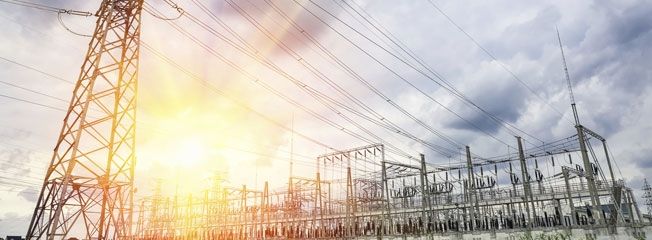Energy Sector Welcomes Blockchain Worldwide
Updated: Oct 29, 2017 at 07:14

Numerous energy-trading companies are looking into adopting blockchain technology for conducting transactions. What they want is to create a peer-to-peer network allowing them to deliver energy to customers quickly and efficiently, without a difficult process involving third parties.
Blockchain-based solutions are able to significantly disrupt the energy-trading sector, offering seamless interaction between market participants, improving transaction speeds, increasing the reliability of data and reducing cost. Coinidol has made a list of companies that offer or are looking into offering blockchain-based and smart contract-based solutions for trading in the energy sector.
Deloitte Smart Contracts for Gas Trading
According to Deloitte, smart contracts technology can really improve the market by simplifying the process of trading, reducing the cost and, therefore, increasing revenues. Blockchain is able to open the market for customers, making energy delivery simple and available, and allowing for greater transparency.
Of course, the process is not going to be fast and without challenge. There are a number of issues the companies are to overcome to open the market for blockchain-based technologies, including the issues of regulation and interaction with governments.
Energy Giants are Testing Enerchain
23 european energy-trading giants have partnered to test Enerchain - a new blockchain-based P2P platform for energy trading. Enerchain allows participants of the network to carry out anonymous sending of orders into a blockchain-based unified orderbook for companies to view and take orders. Therefore, it implies no third-party organizations, which may also significantly reduce the cost of transactions.
The trials will start in August this year. Among the participants one can find such Energy-sector giants as Aliq, ARGE Netz, PONTON, Uniper Global Commodities SE and others.

Energy + Blockchain = Power Ledger
Australian energy startup Power Ledger also offers a blockchain-based solution for delivering locally produced renewable energy to the end consumer. Their software allows for tracking every unit of sold energy providing a secure revenue stream for DNSPs.
Therefore, energy producers get a transparent, auditable and automated network for trading without involving any third-parties.
Another Solution for Microgrid
The Blockchain-based Brooklyn Microgrid project allows its participants to sell extra energy from their solar panels to their neighbours. All they have to do is to buy a computer with a blockchain-based “node”.
The Blockchain then processes and records transactions automatically. The “nodes” have to validate and share information to minimize the downtime or interference with the data. The more data are to be turned into “blocks”, the stronger computer you would need.
Smart Meters From Electron
British startup Electron offers solution for quick change of energy suppliers through blockchain. They cooperate with Data Communications Company, which offers a list of British energy suppliers having Smart Energy Code.
Previously, it took much more time and effort to change energy supplier if a customer was dissatisfied with their current services for some reason.
Single Blockchain, Numerous Decisions
Grid Singularity, another startup from Austria, offers multiple blockchain-based solutions for the energy sector, including apps for energy data analysis and benchmarking, smart grid management, trading of green certificates, investment decisions and energy trade validation.
They aim to develop a decentralized energy exchange platform with numerous functions and opportunities, so their users can benefit from simple and efficient energy-trading and exchange.
As blockchain technology is being developed, there are more and more use cases appearing for it in different markets. However, the question still remains: how many people are actually willing to use these solutions? How exactly will it disrupt the market and is it able to do that at all?
If you are expert in this field and you have any comment or opinion, feel free to send it to our e-mail info@coinidol.com. We will add it to the article.
News
Coin expert
News
Price
Price

(0 comments)